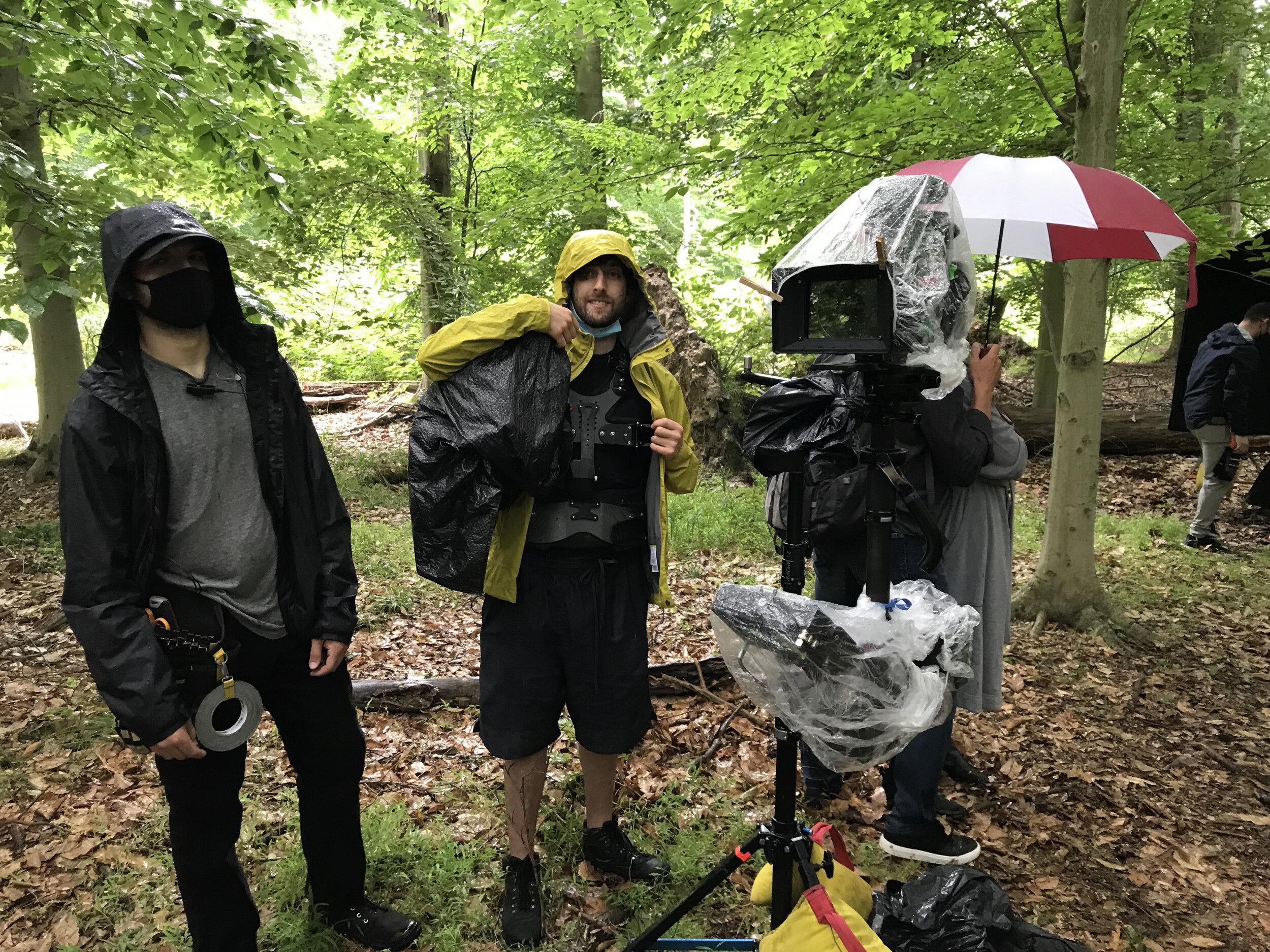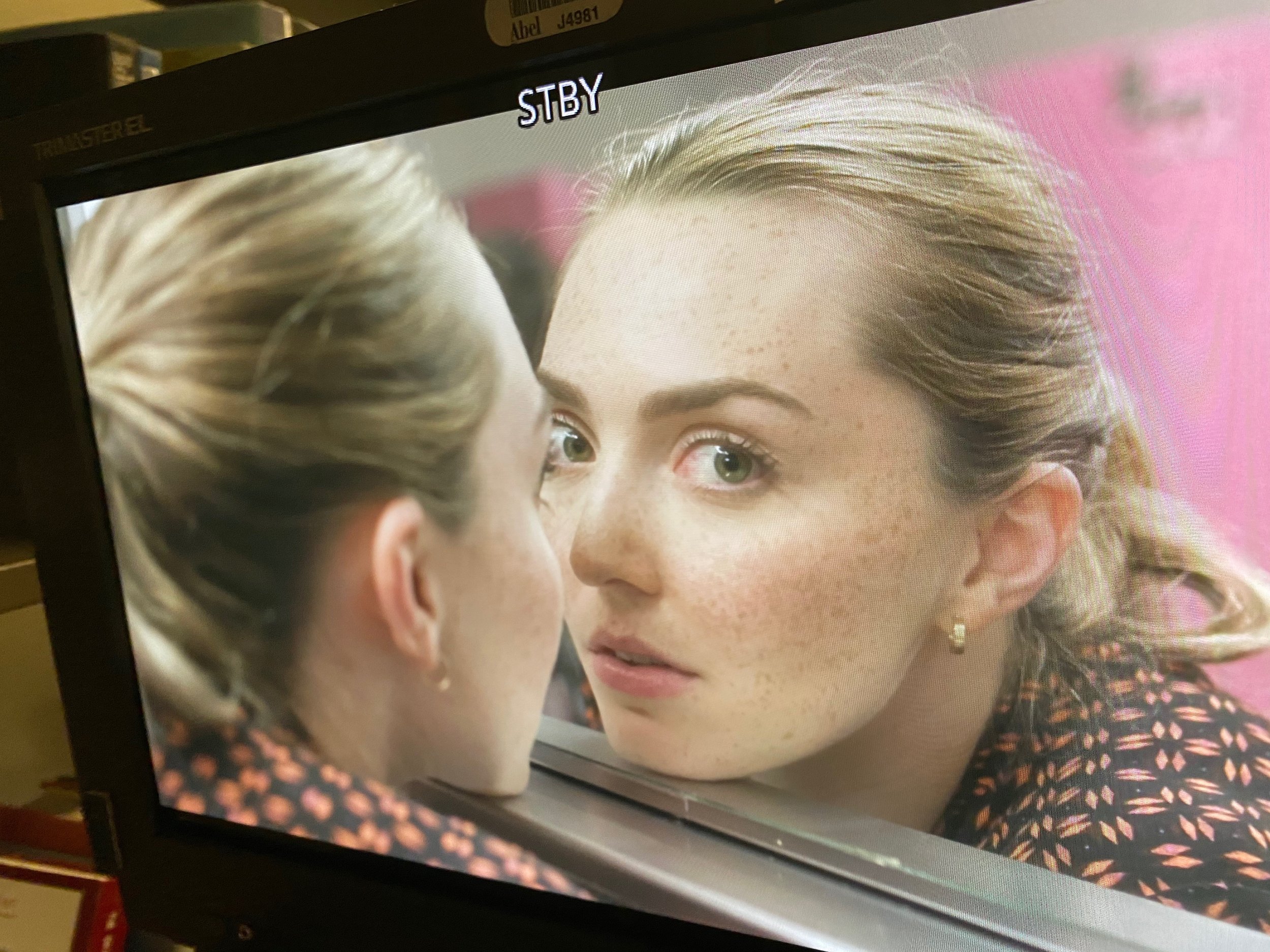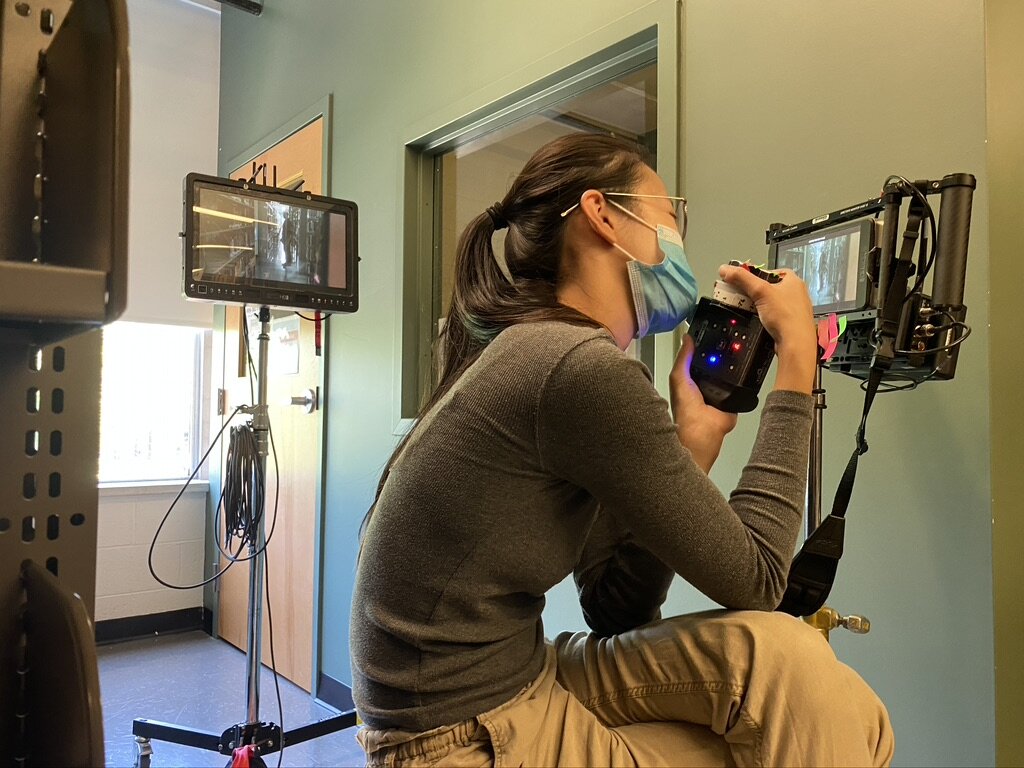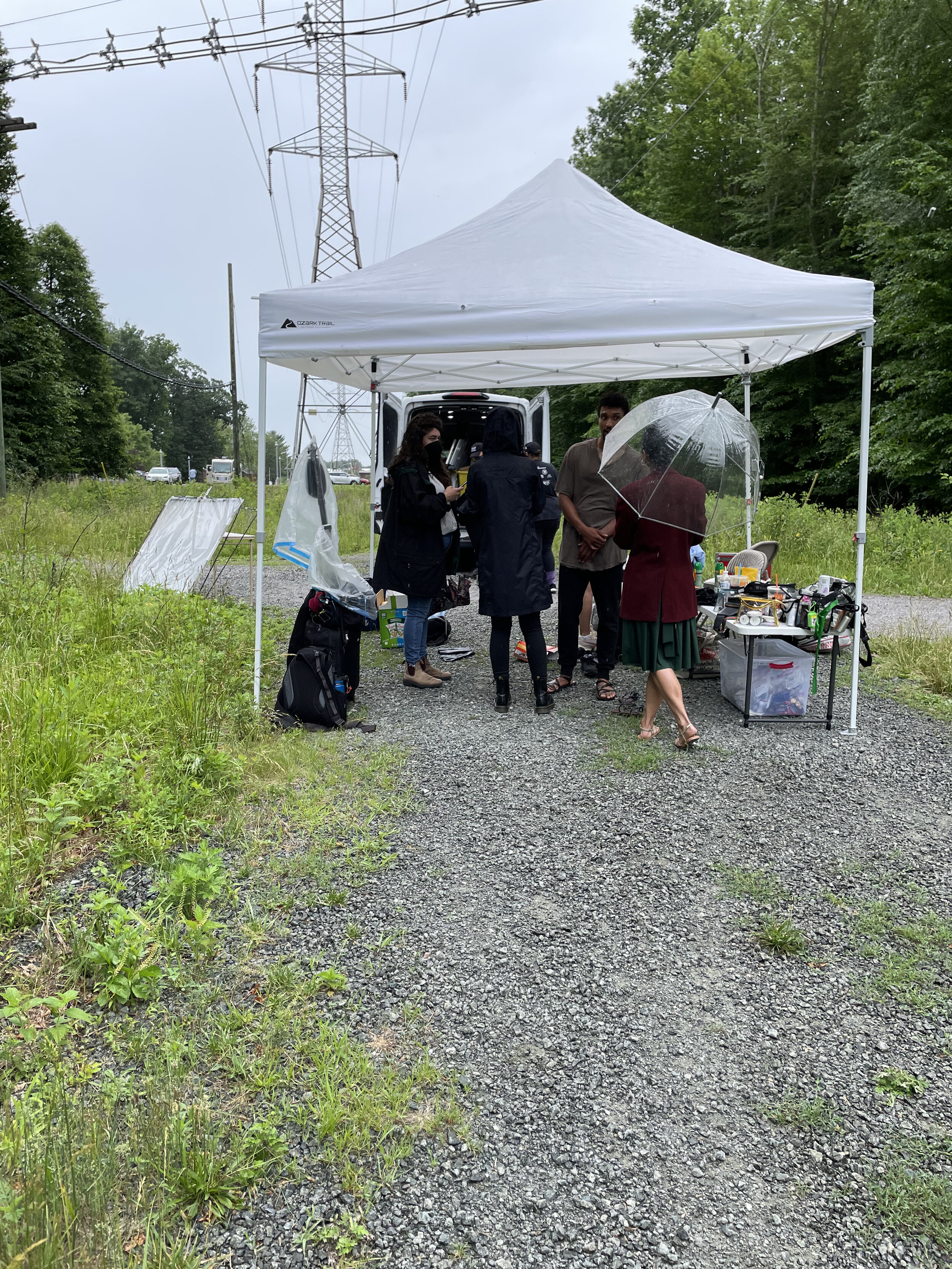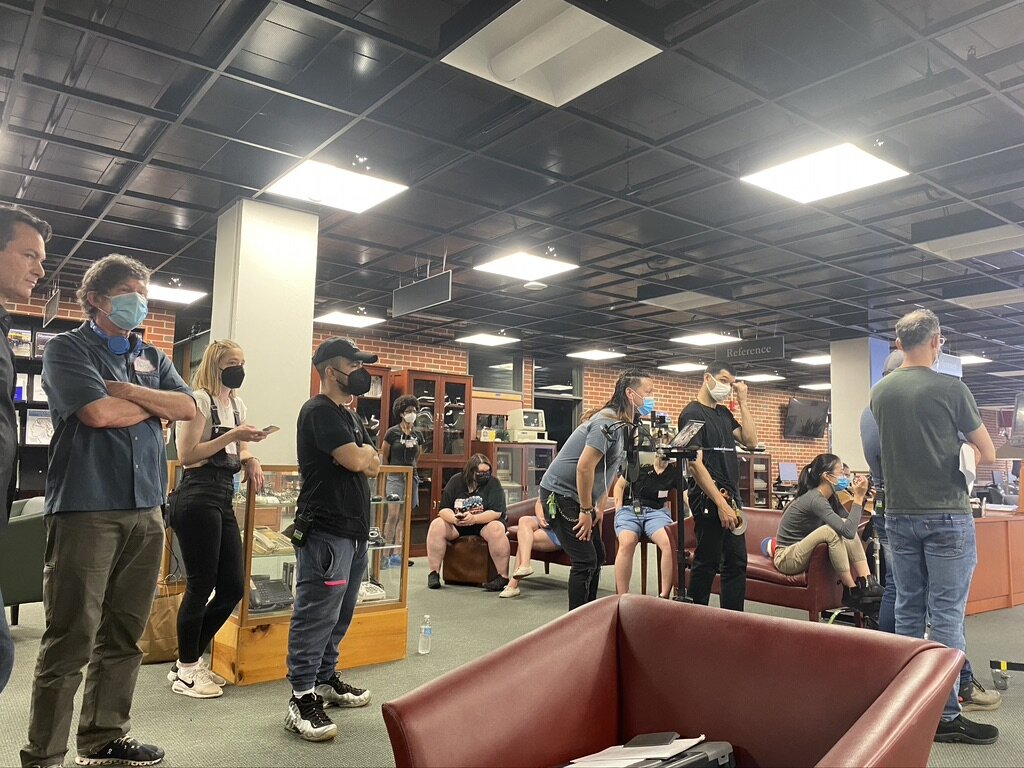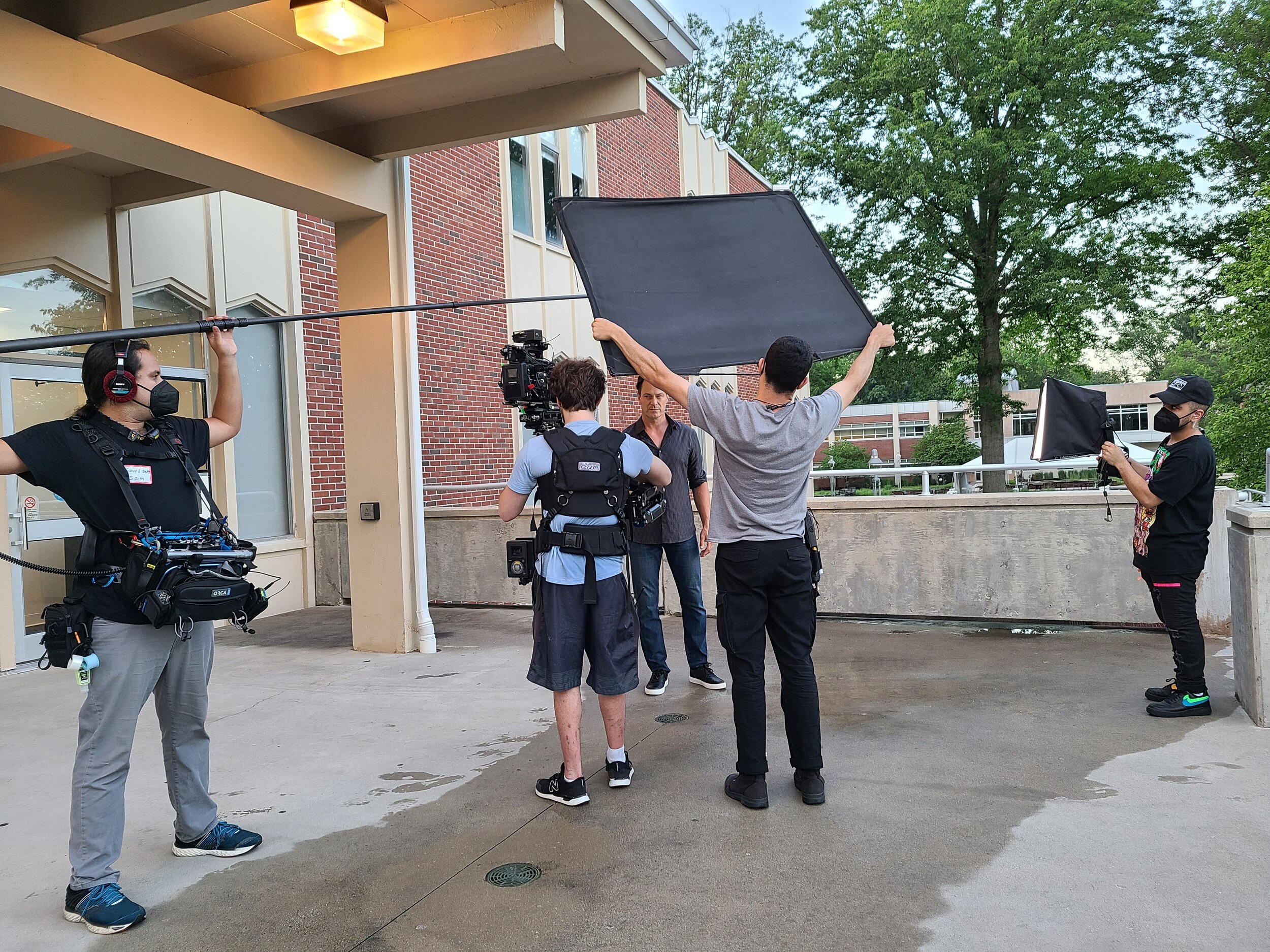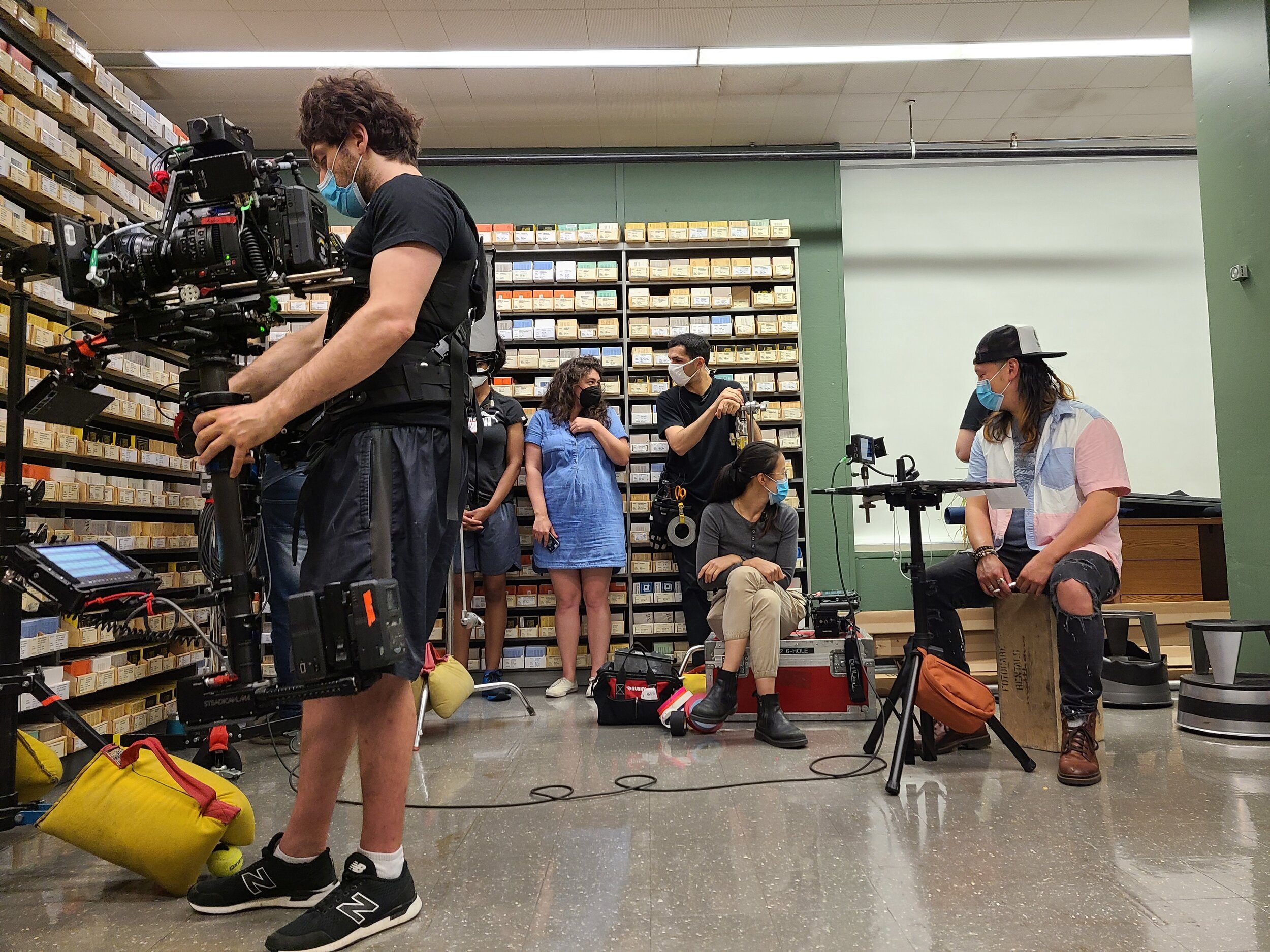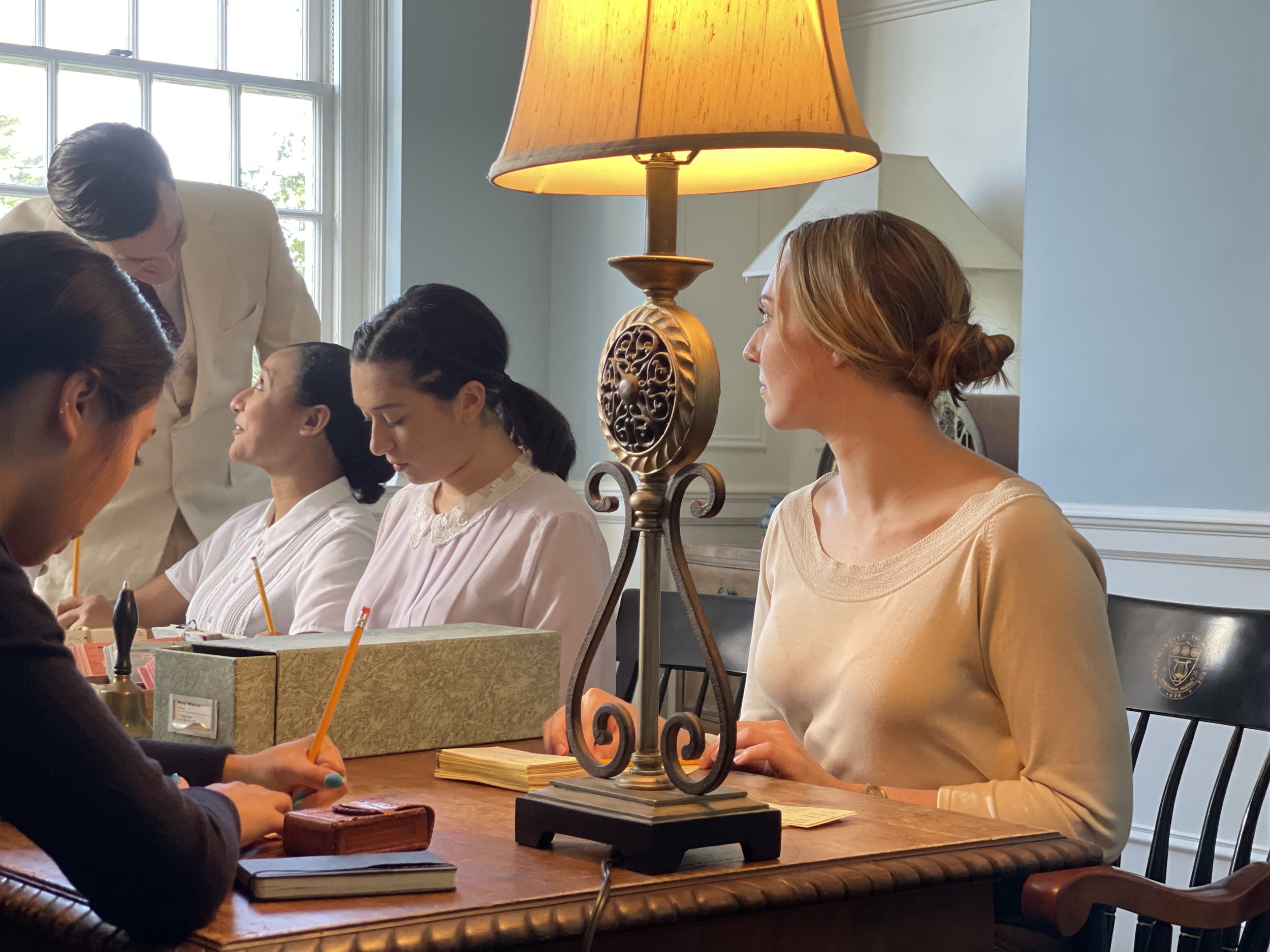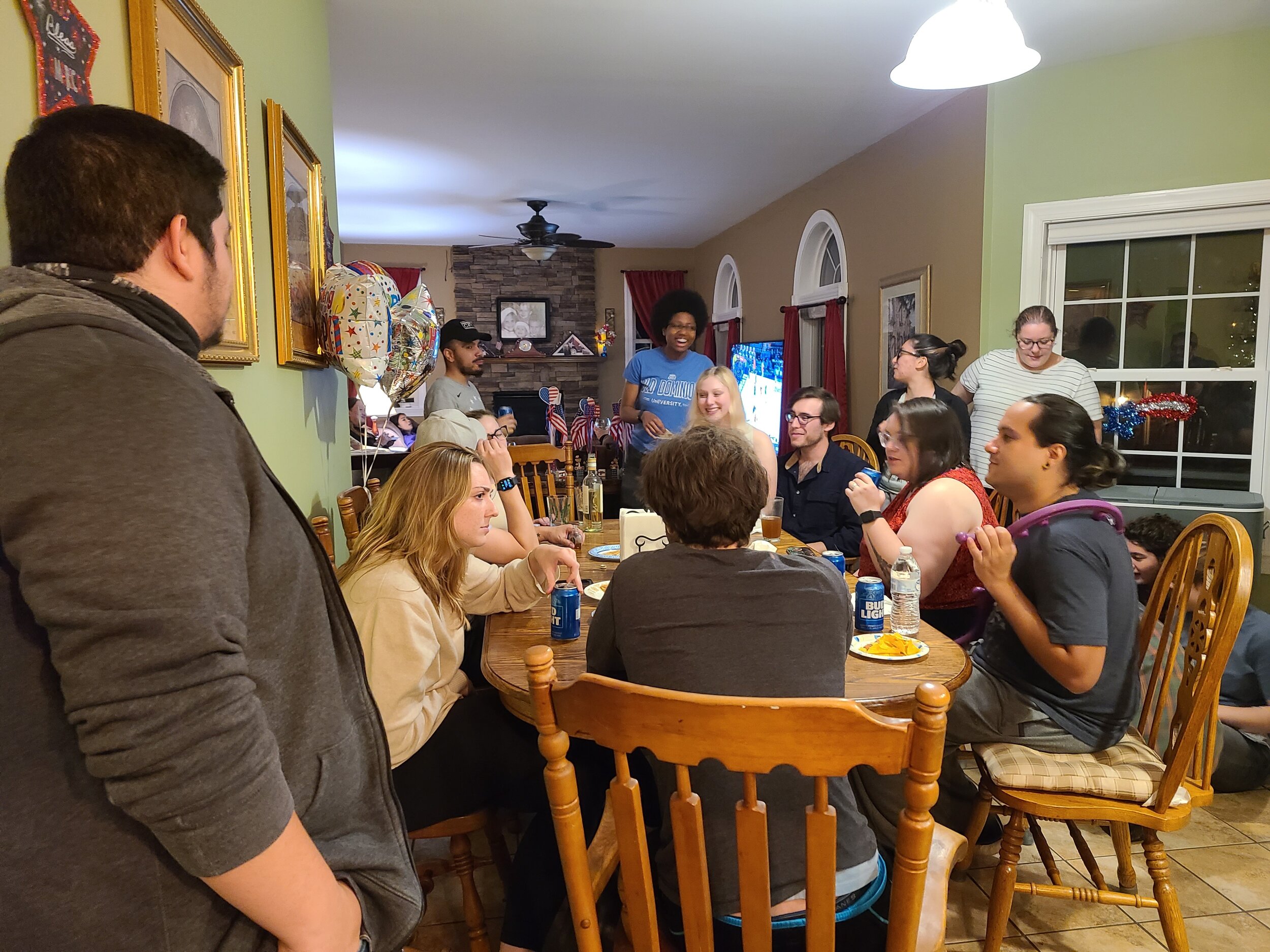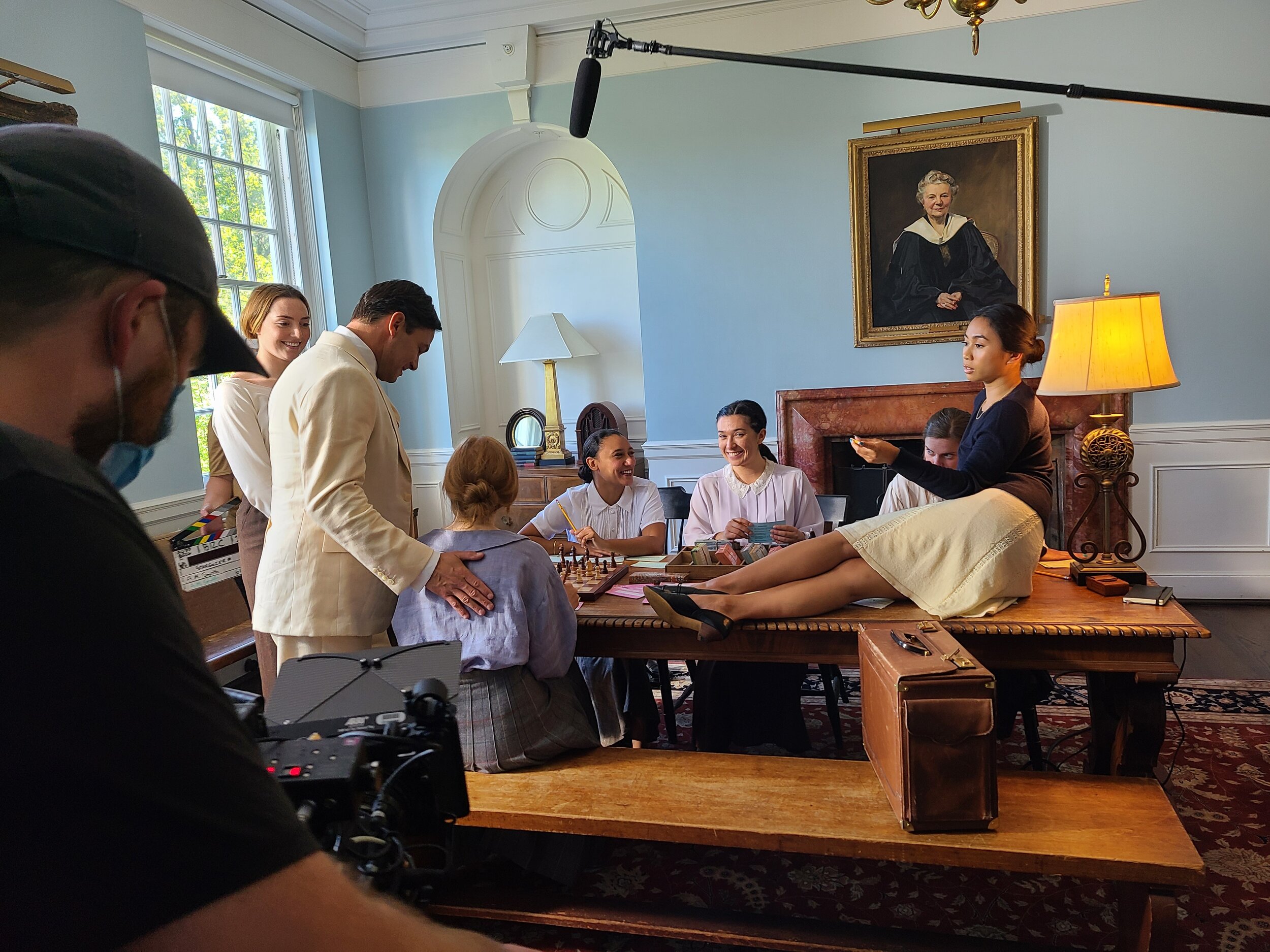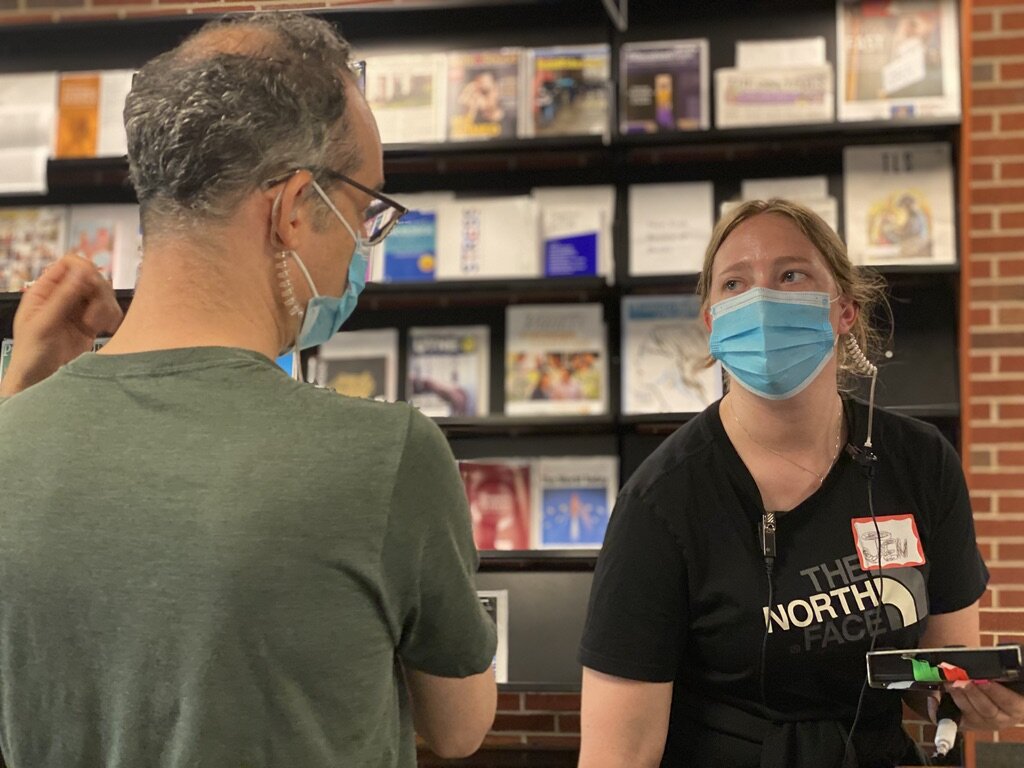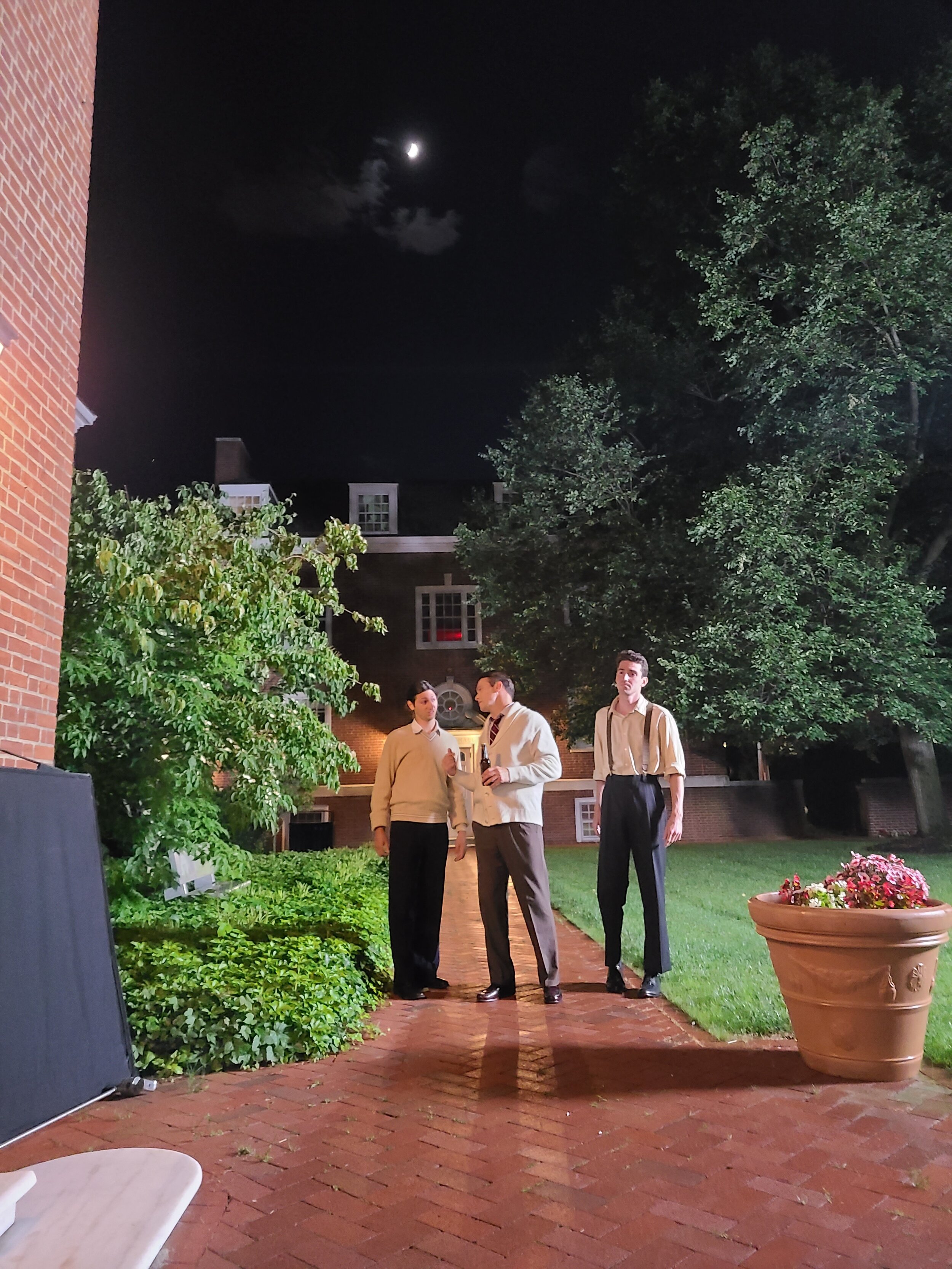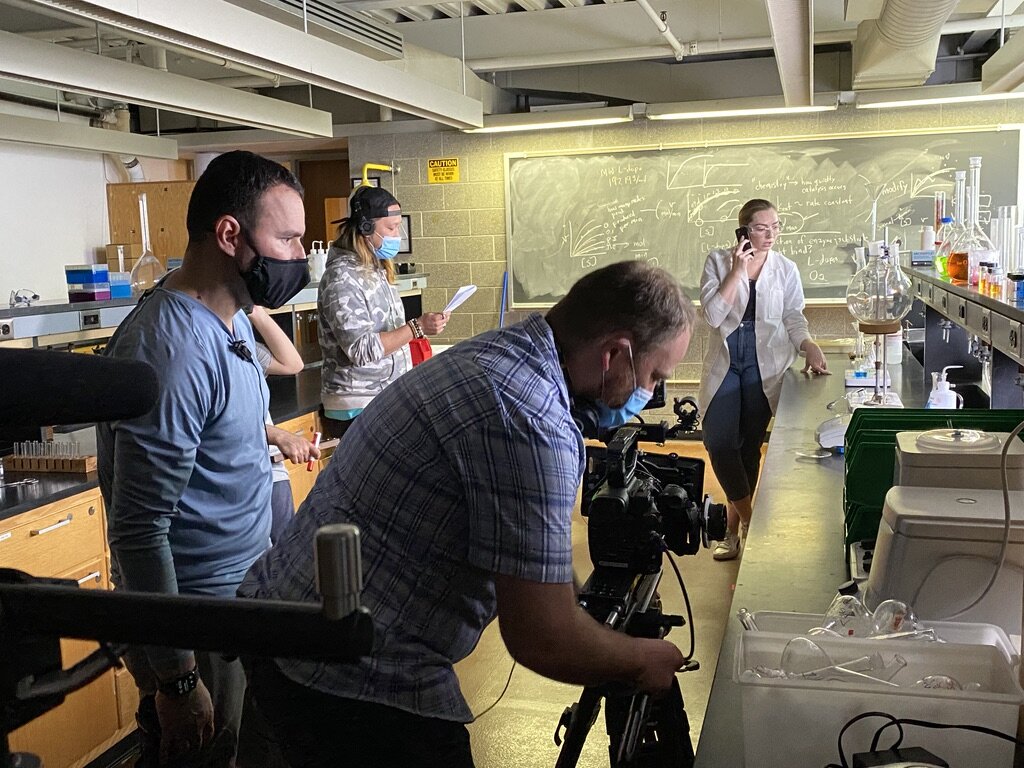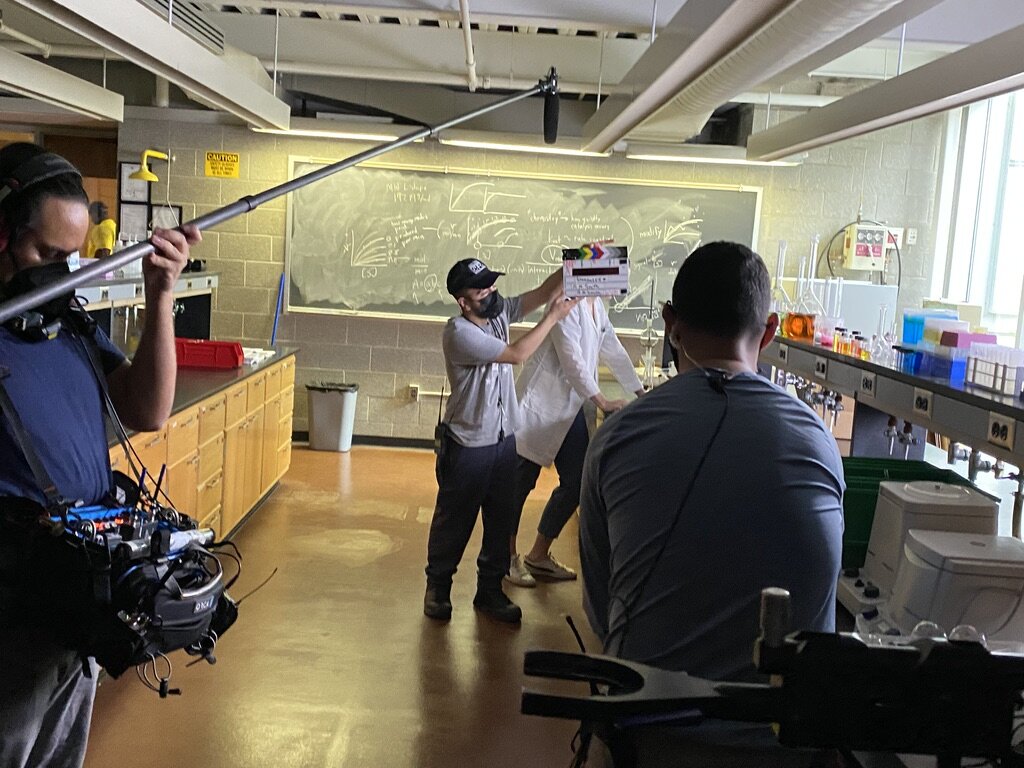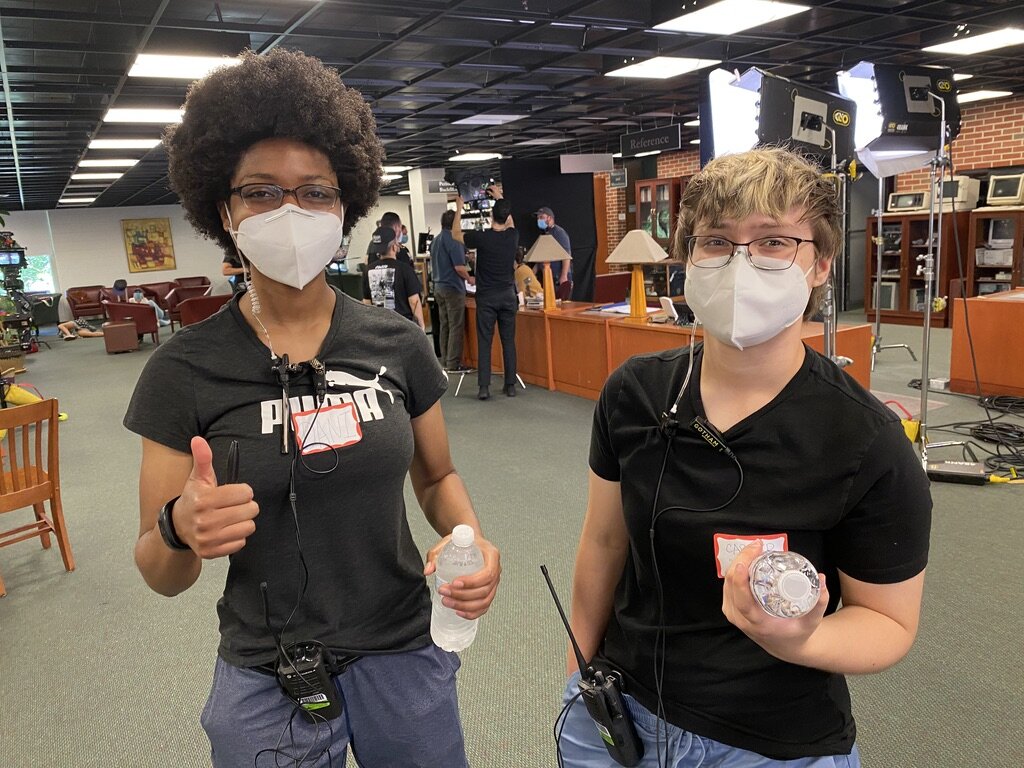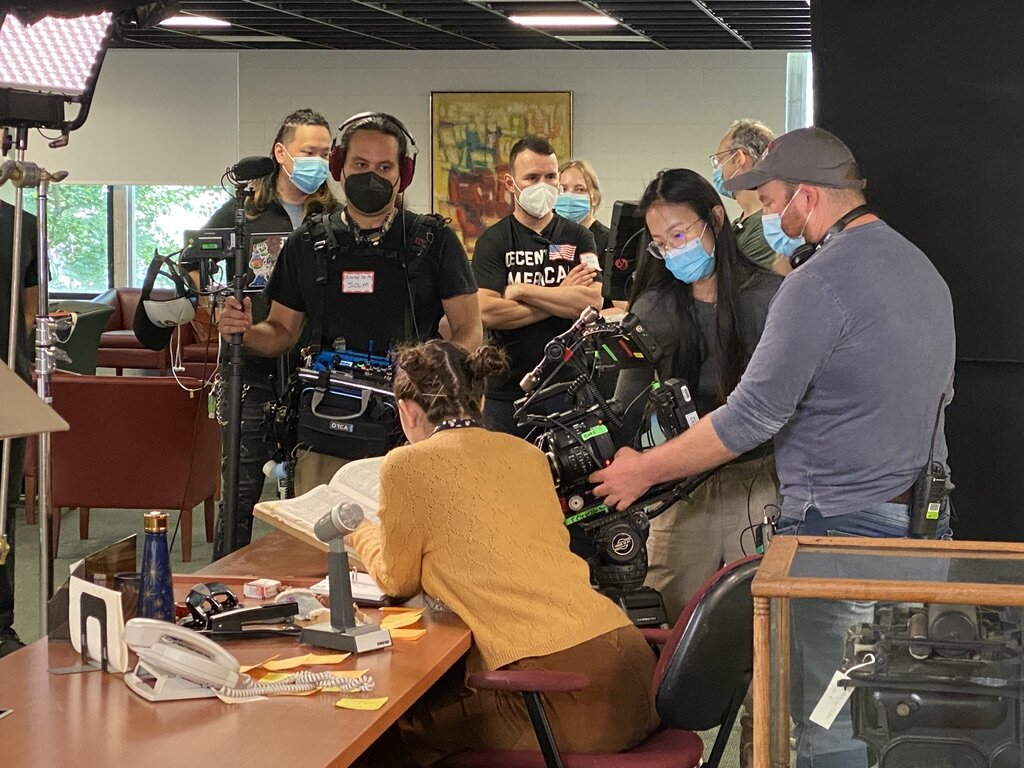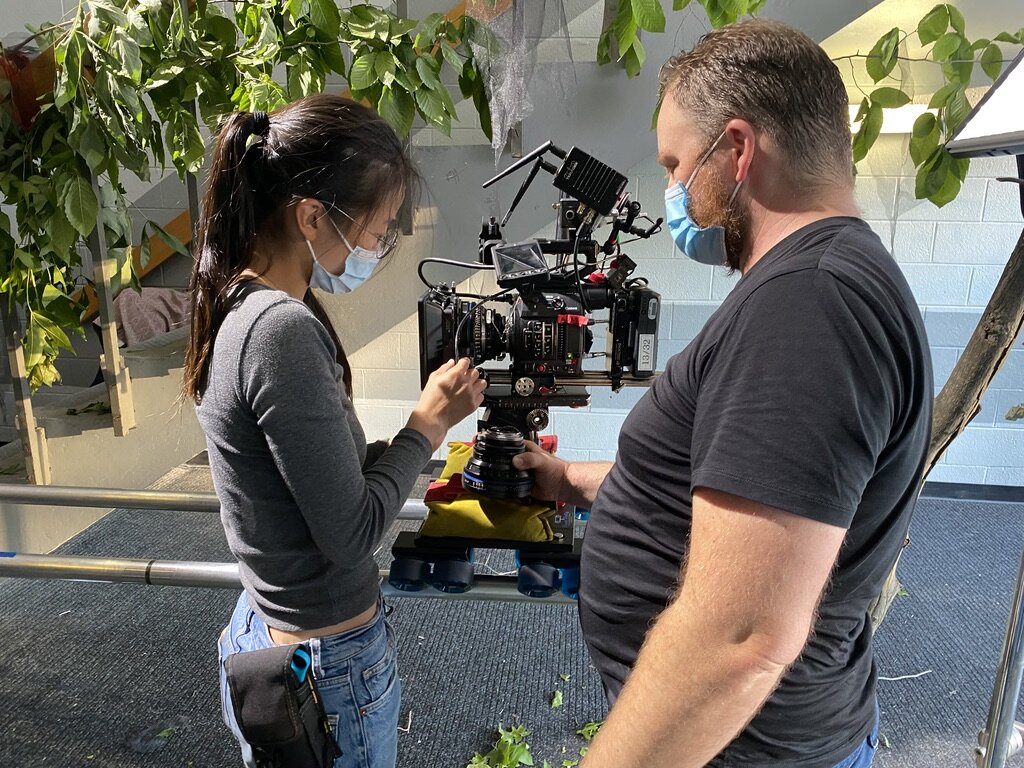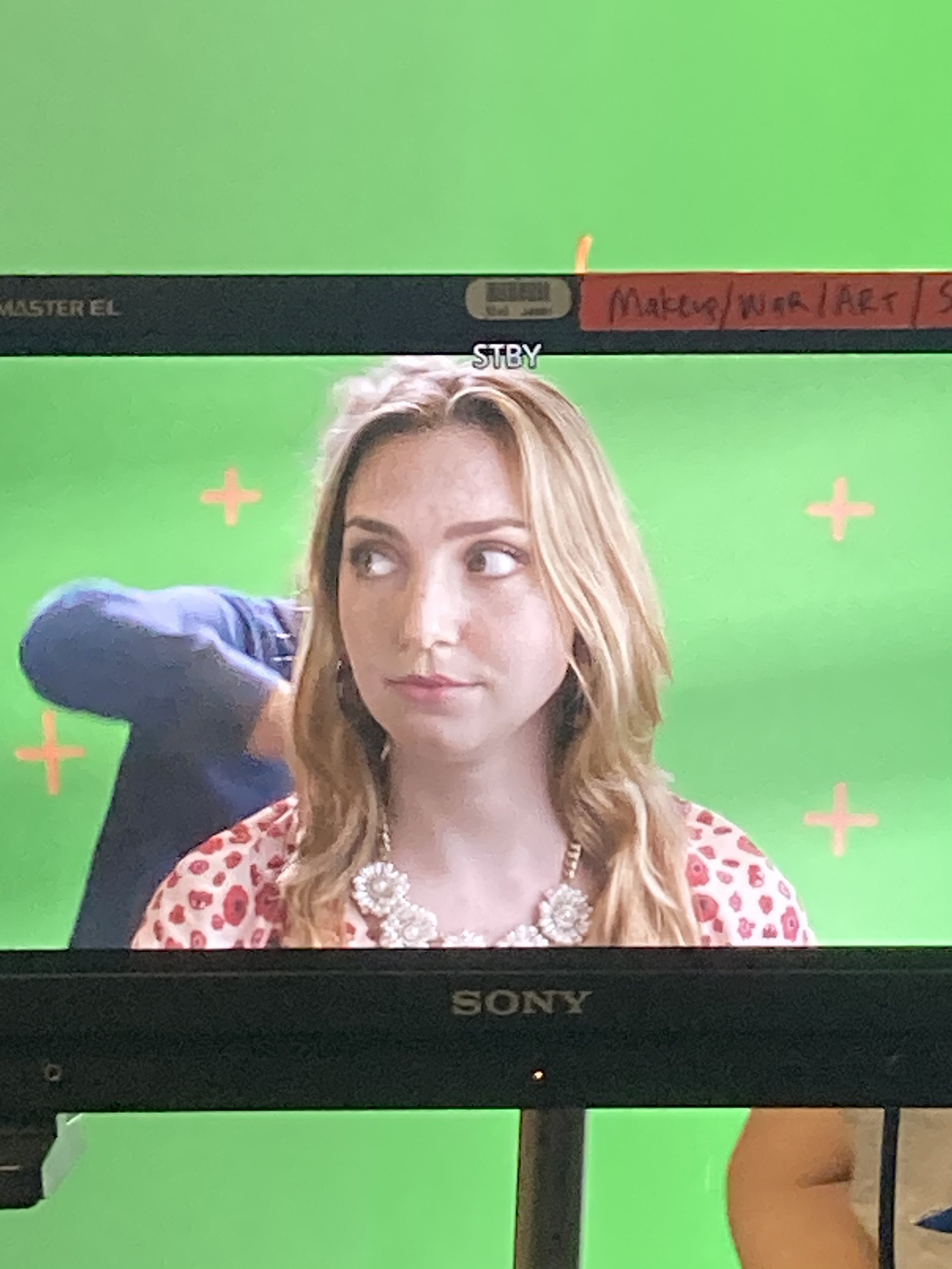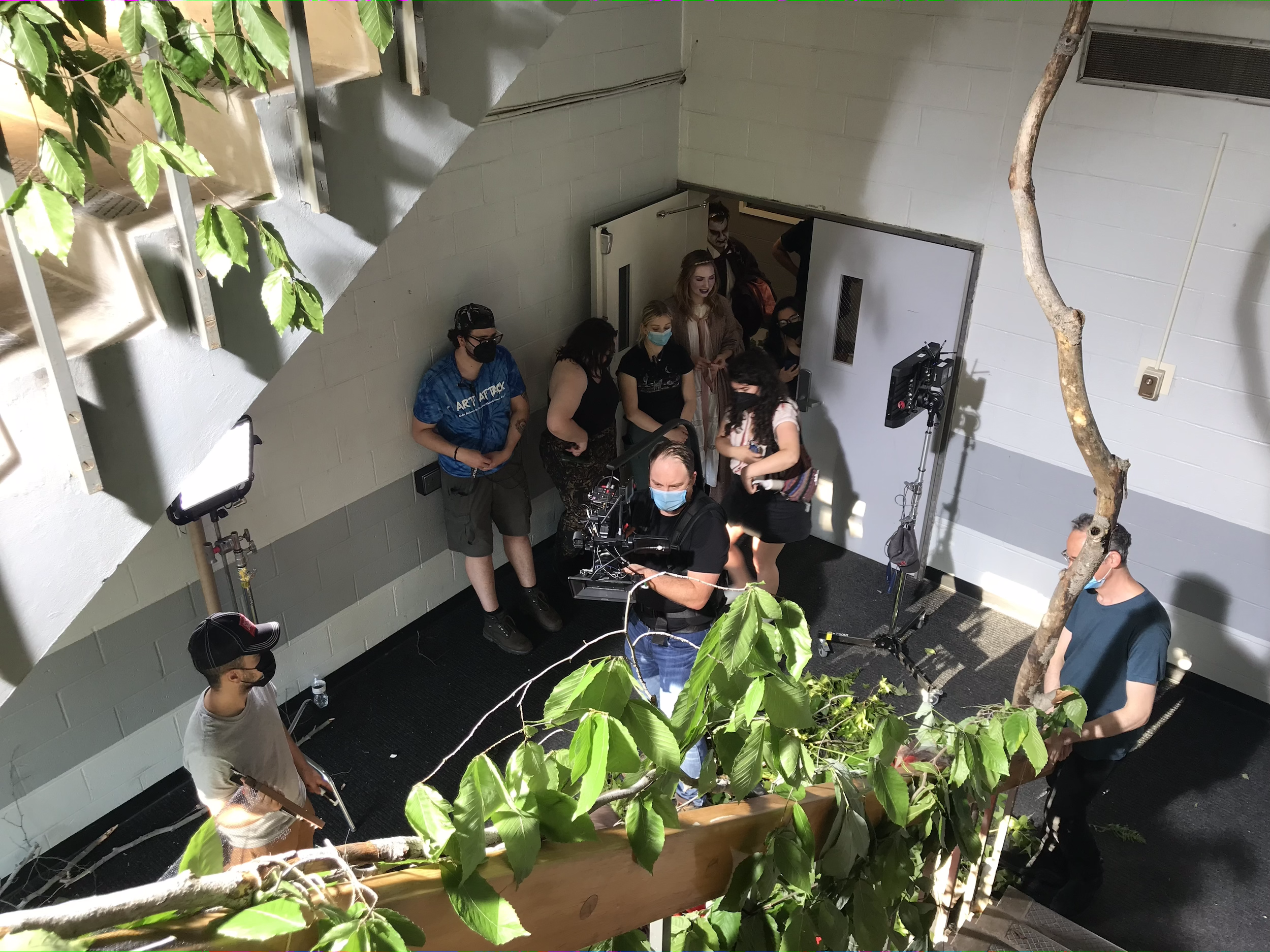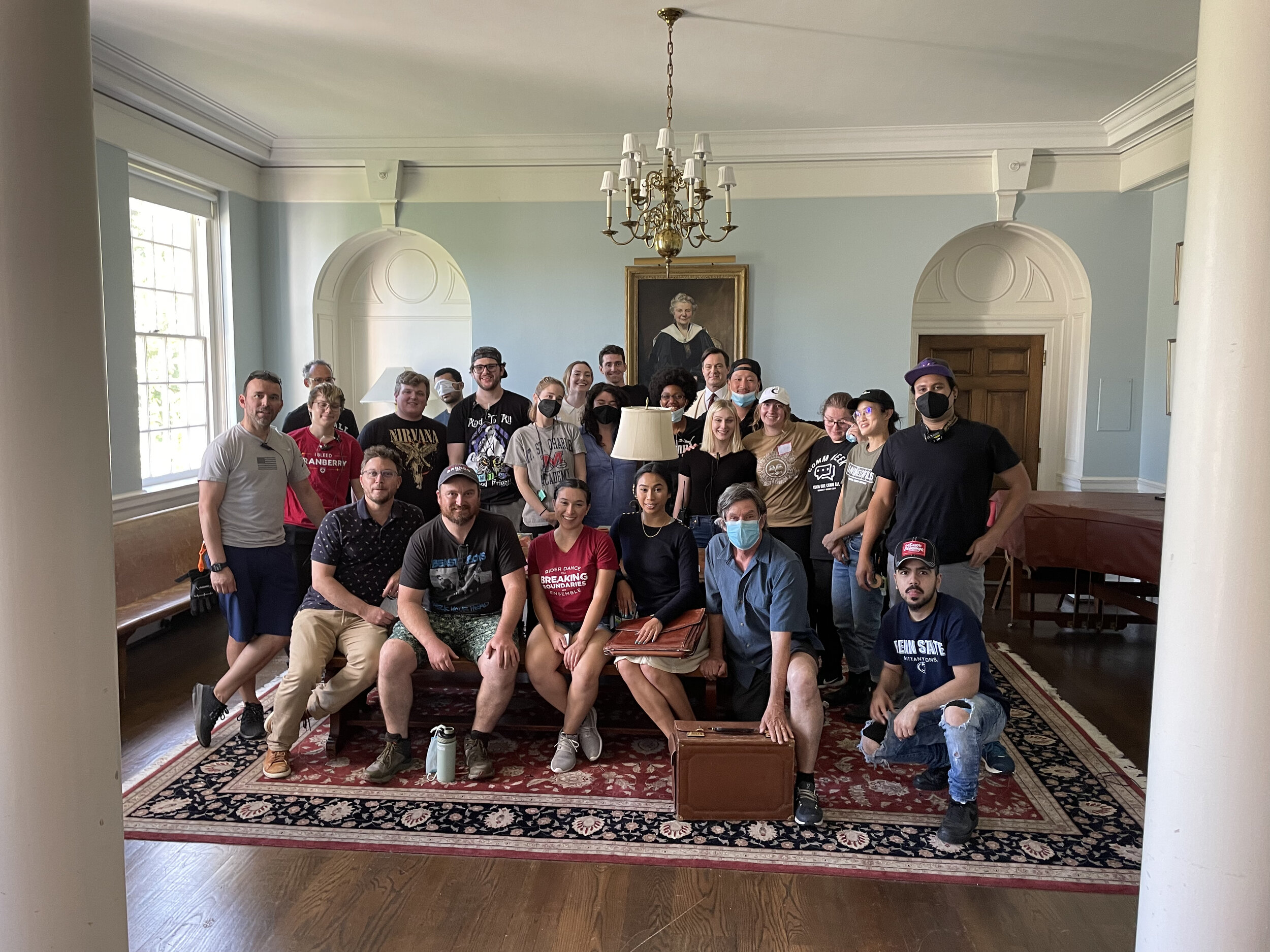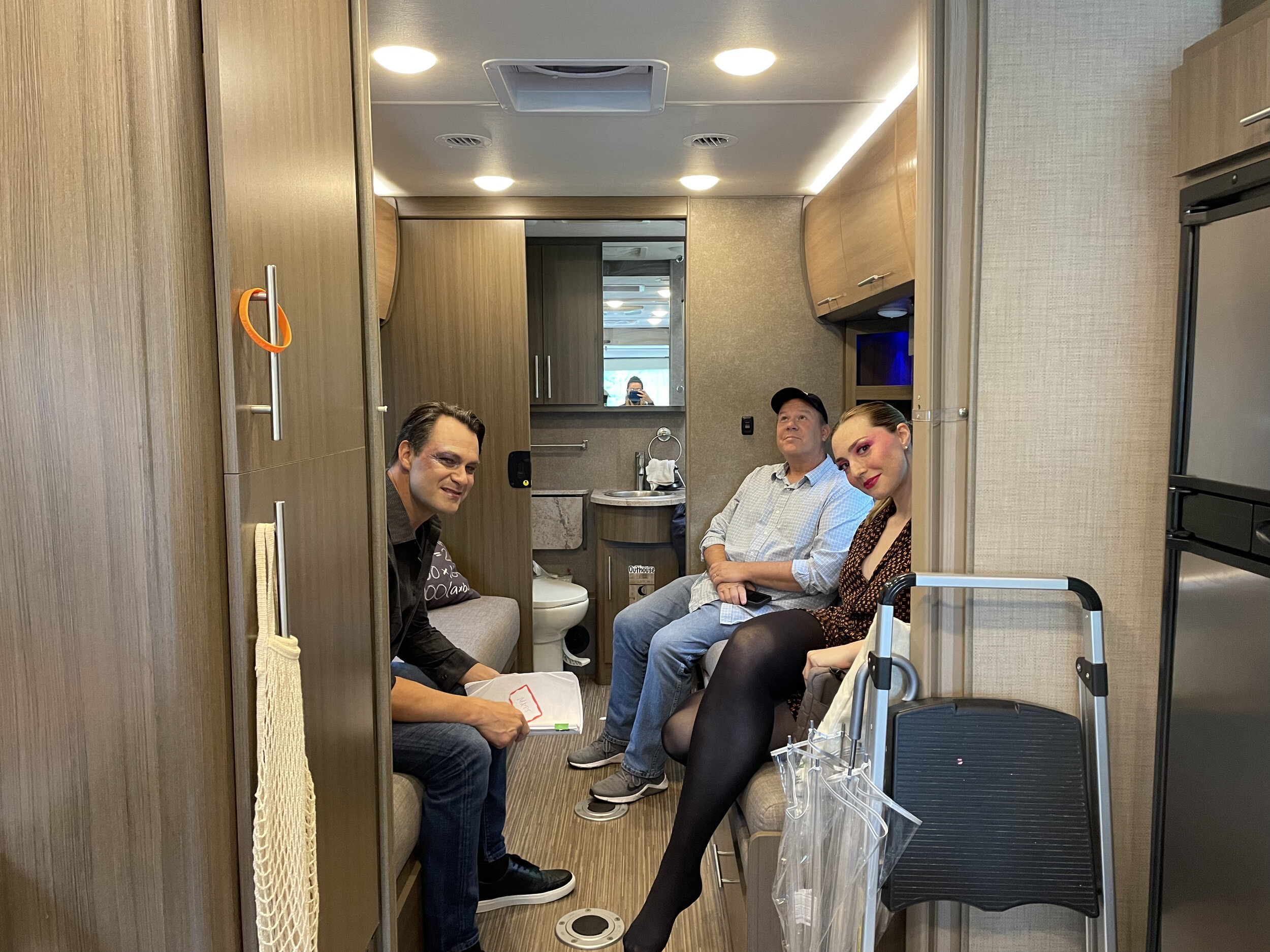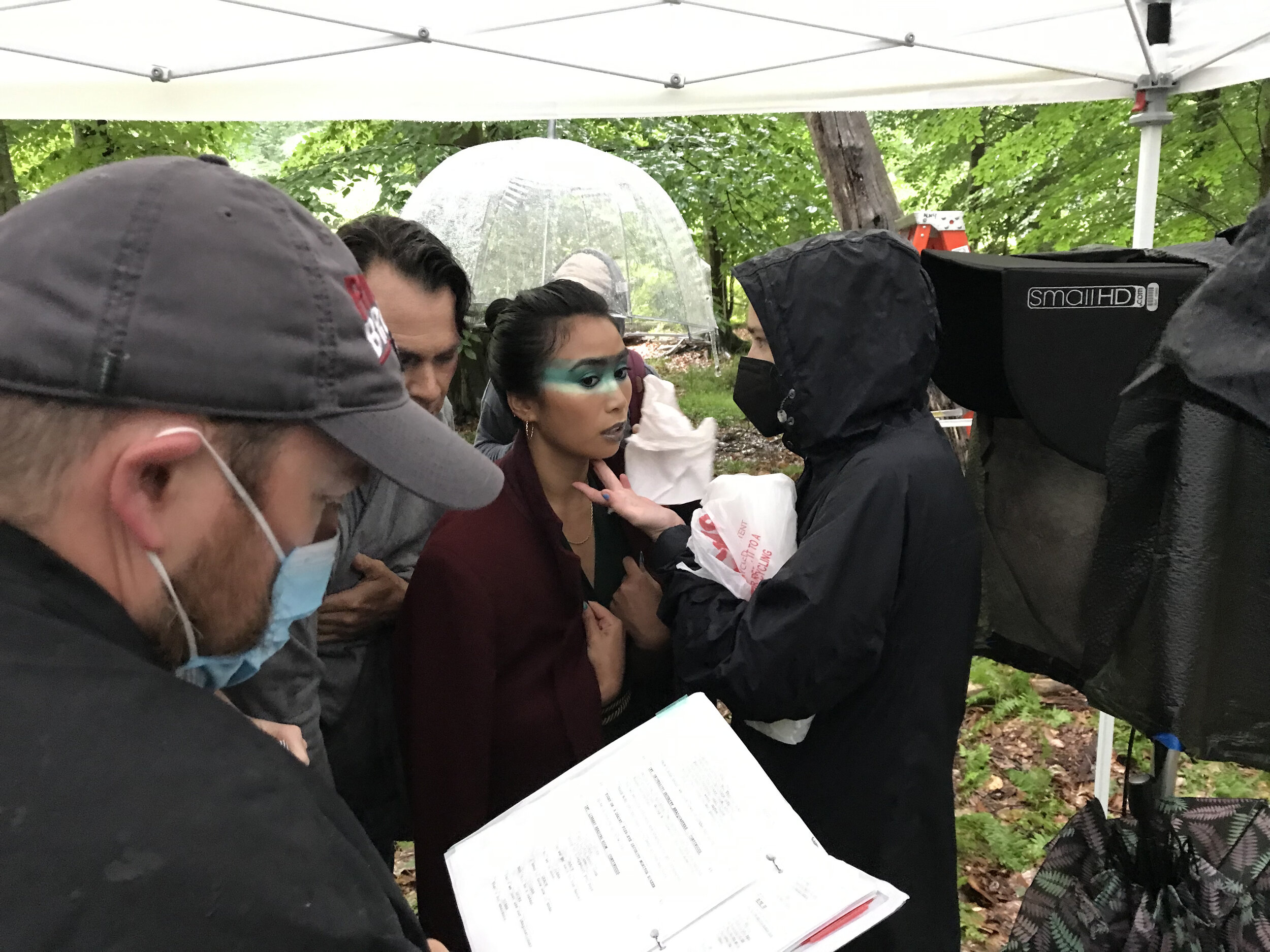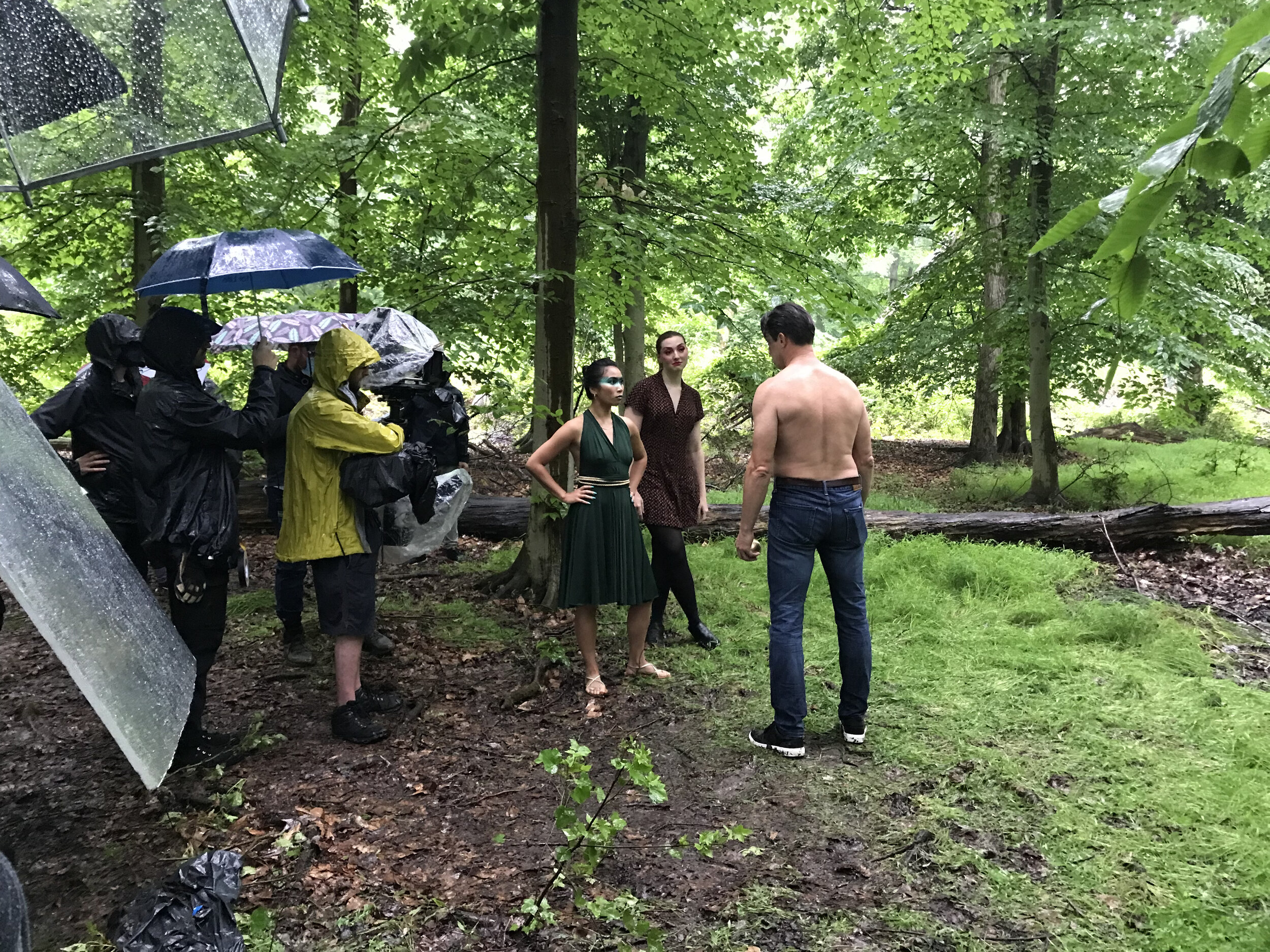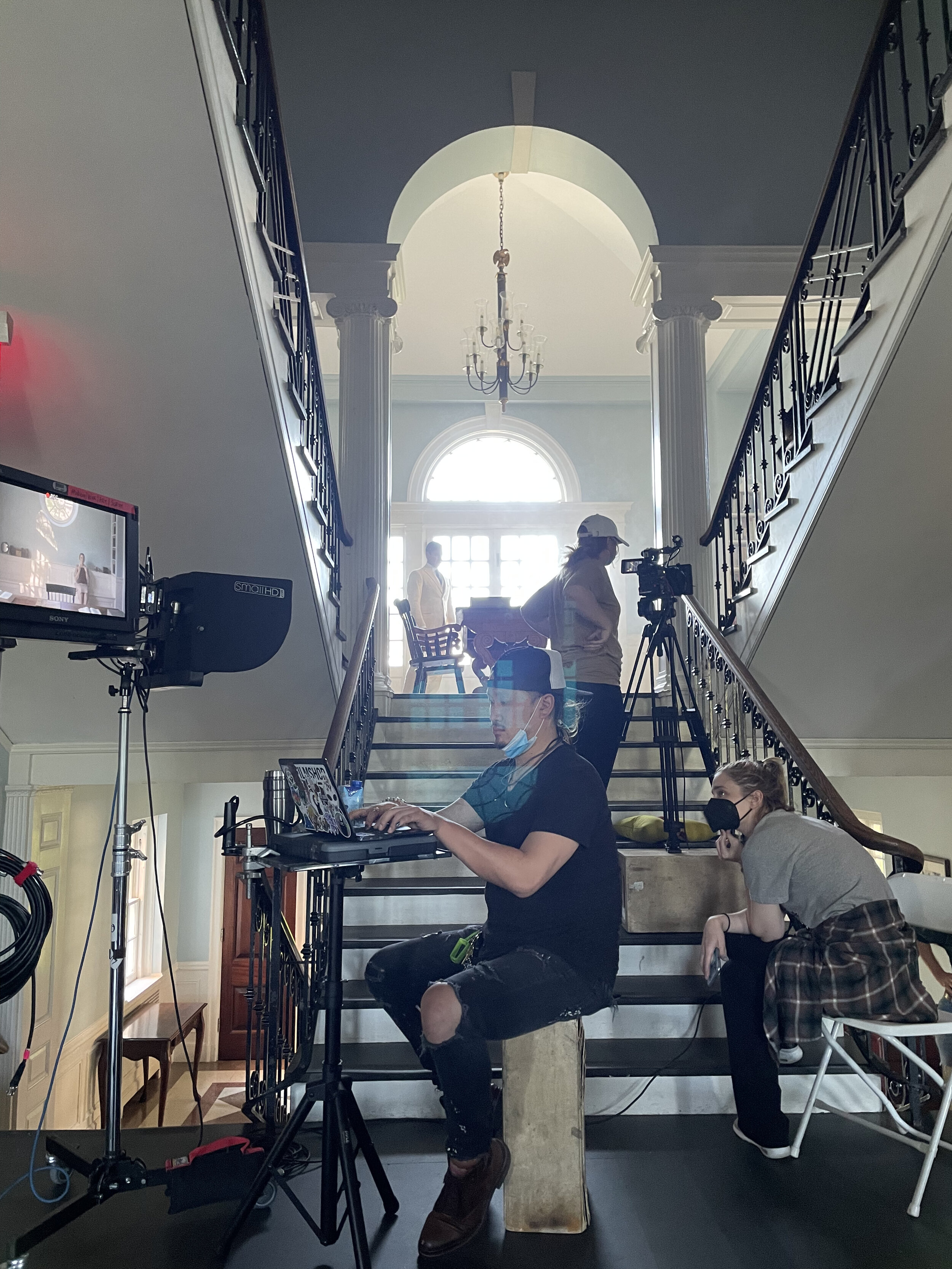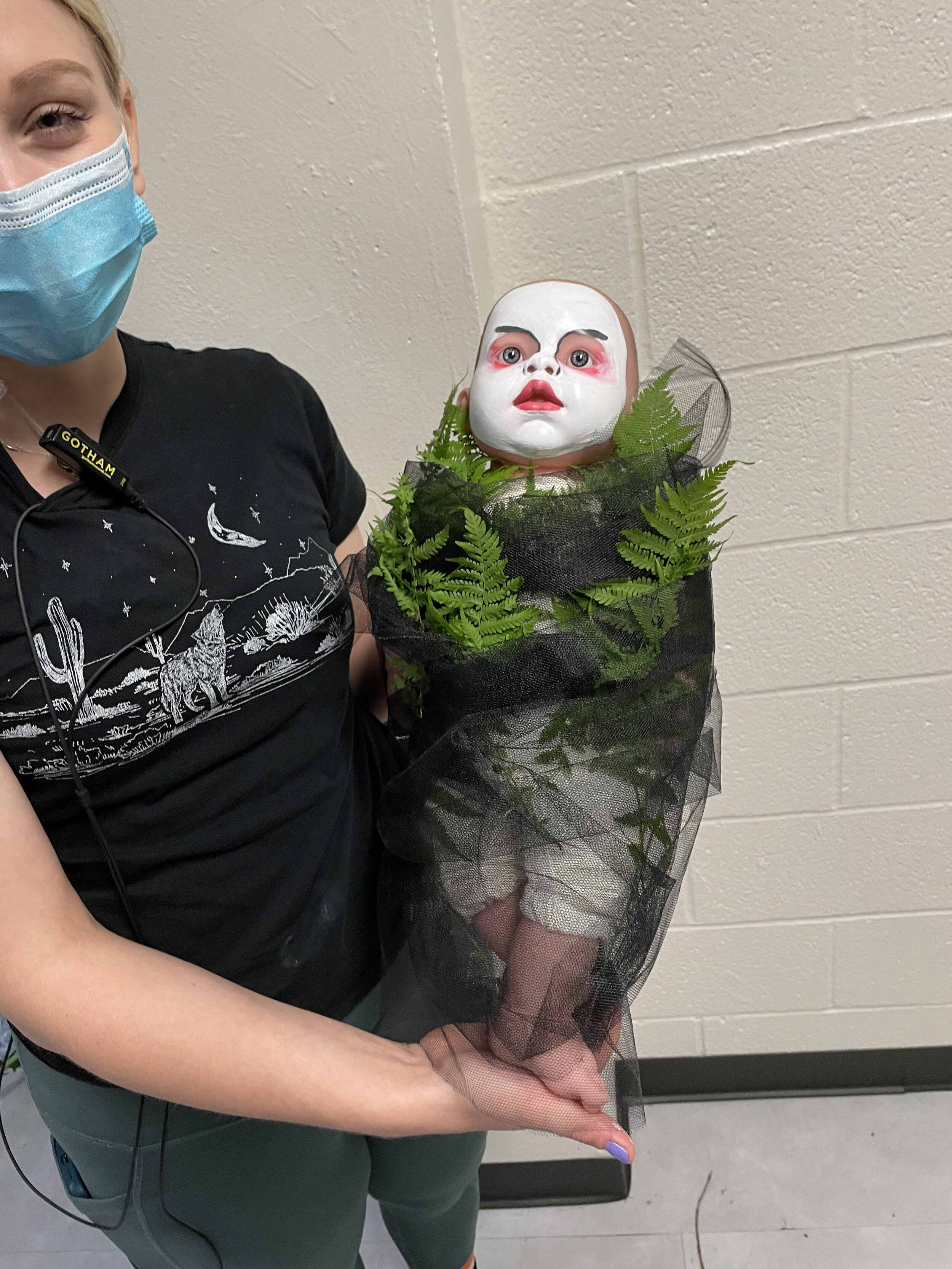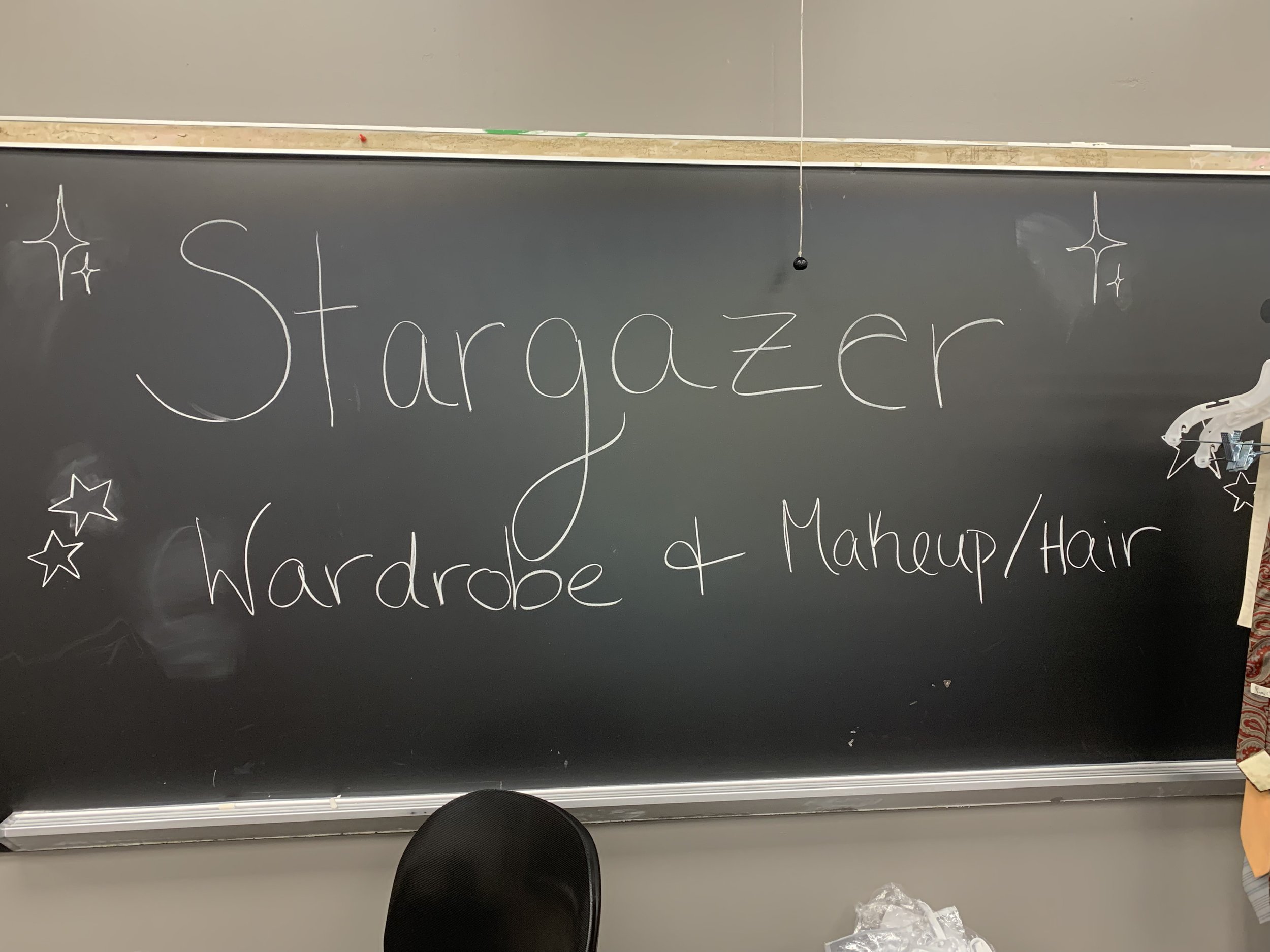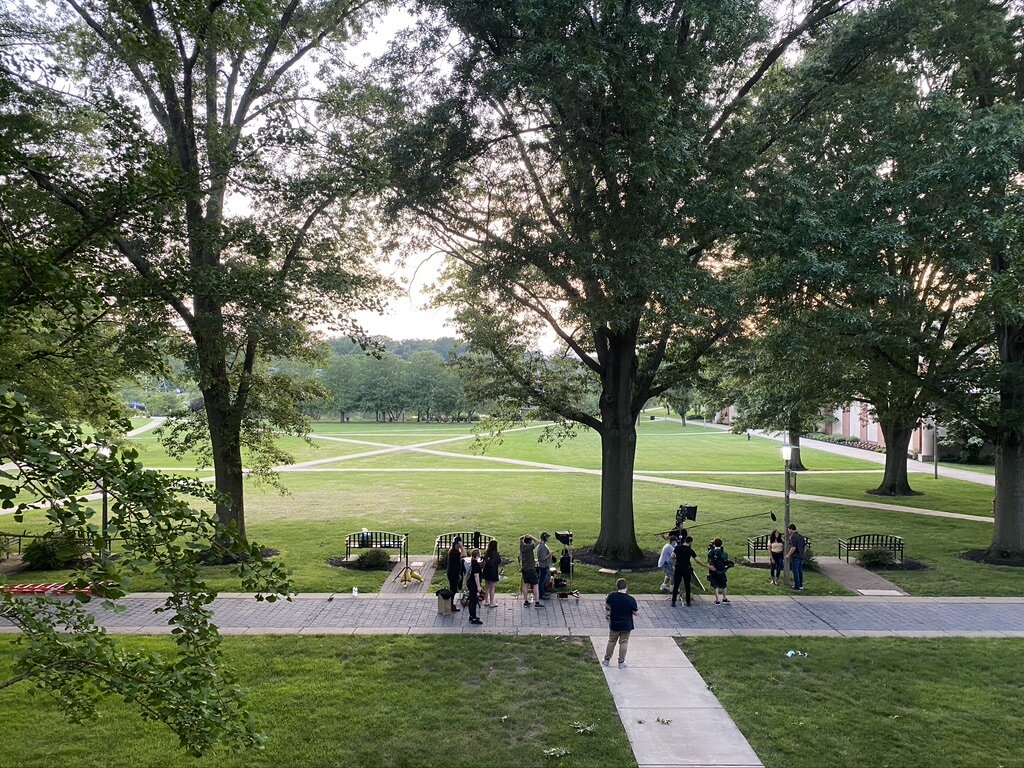
persistence
by Rob Ackerman, co-writer
There were thirty of us. In a forest in the rain. Working, determined, shivering for hours. We had to get these shots, scenes we'd imagined and written and rehearsed. An older writer with a younger collaborator, a seasoned producer with a first-time director, a Broadway veteran with a gifted ensemble, department leaders with diverse student crews, and a work ethic that knew no bounds. This was what it took to tell an allegory about the greatest female scientist you've never heard of.
Before it became a movie, Stargazer was a play. Six years ago, I'd fallen in love with a mistreated genius. Kate Ginna helped to create the student, journalist, and dancer who'd be drawn into Cecilia's orbit. It took research and rewrites and wrong turns, followed by Zoom readings and masked table readings and distanced backyard readings. We formed a pod to rehearse and argue and organize and shoot and edit a short film that had a chance to grow into a feature.
But we needed a director. Out of the blue, I got a call from a friend of a friend of Matt Bogart, a cinematographer named Alan McIntyre, who said he loved the script and knew how to make the movie. Alan had experience on more than a hundred films and taught at three universities, including one that offered its campus as our shooting location.
We knew the job would be brutal. It required a great producer, someone comfortable under extreme pressure. Someone like the former supervisor of three SNL Film Units, Justus Mclarty, the best I've ever witnessed. Justus and I had met unloading trucks. He'd cut his teeth planning river trips for Outward Bound. Now he was working on major motion pictures. Why would he say yes to this tiny micro-budget indie? It helped that his wife shamed him. She’d worked on countless passion projects as an actor and she wanted her husband to know what it was like to go into battle without an air-conditioned trailer, to shoot a movie on a shoestring.
Challenges kept coming. The Screen Actors Guild required constant Covid testing, which seemed prohibitively expensive. Raising money during a lockdown looked impossible. Sudden construction at our main location meant a scheduling overhaul. Plus, we had a literal plague of locusts.
But what we also had, besides a great setting and sense of purpose, was a group of smart people to decorate a dorm room, dress a chem lab, create fantasy costumes, invent makeup designs, juggle lighting and lenses, mix sound and aim microphones, and play roles as security guards, students, and professors crossing the quad. We became an elite team, sleeping on campus, sharing cafeteria breakfasts, working crazy hours. Experts taught beginners, and everyone stayed cheerful, even through the seemingly endless phases of post-production.
Now our movie is made. Many of our rookies are working on their third or fifth films. And we feel mighty good about that too.
